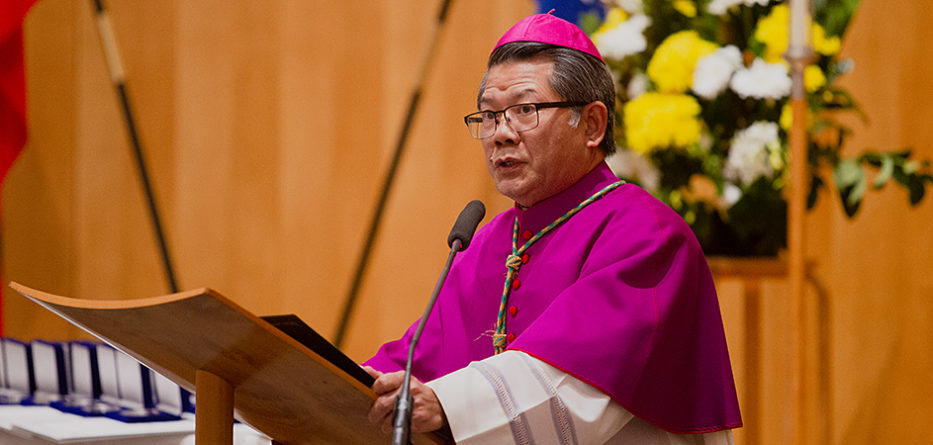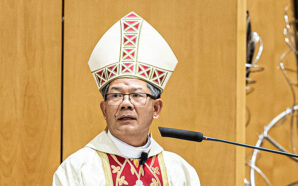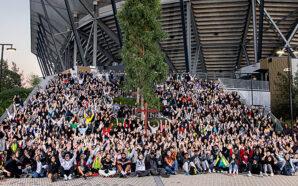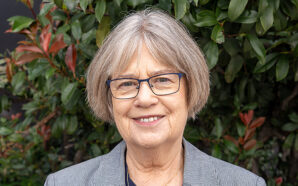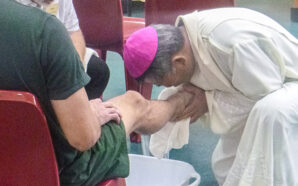Most Reverend Vincent Long Van Nguyen OFM Conv DD STL, Bishop of Parramatta
Homily for the Fifth Sunday of Lent, Year A, 2023.
Readings: Ezekiel 37:12-14; Psalm 129(13); Romans 8:8-11; John 11:1-45
26 March 2023
Living the vocation of self-emptying, empathy and compassion.
Dear brothers and sisters,
Life is full of paradoxes and contradictions. Consider the extreme rich and poor, for example. Last week, the new Rich List for 2023 was published and according to this research, things aren’t as bad for Australia’s exclusive club as they are for the rest of us. In fact, the top earners increased their wealth handsomely despite inflation that causes a lot of pain, especially for people on Struggle Street.
Then there are many who suffer beyond comprehension. I happened to watch Foreign Correspondent on ABC TV, which tells the story of a young mother and her four children, all under five years of age. They walked from their village to a makeshift camp in a hot dry desert, a total of 30km in length, over 10 days with no food and little water. That was not all. She was seven months pregnant and often had to carry her youngest child as well. The poor mother along with thousands of Somalis, mostly women and children, are displaced and facing hunger in their own country. It is a humanitarian crisis that is driven by a combination of conflict and drought. Human suffering is rampant and indiscriminate. Many others around the world, like the Somali mother, have more than fair share of suffering due to poverty, war, violence, cruelty, disaster, accident, illness, death etc.
The Word of God today speaks about a God who is fully immersed in human suffering and vulnerability. In Jesus, this God shares our pain and invites us to join him in a response that is life-affirming and life-giving. As his disciples, we can work for transformation, knowing that God can bring even good things out of evil, triumph out of defeat and life out of death.
In the first reading, the prophet Ezekiel gives new hope to the hopeless people during the great exile. He assures them that God would bring about a new future for his people. He would reconstitute Israel not with the strongest and the elite but with the meek and the lowly. Using a dramatic image of the valley of dead bones, Ezekiel predicts that God would do the impossible. God uses the very elements of suffering and death to weave a new web of life.
The exile was the most humbling experience for God’s people. They were subject to a long and painful process of dispossession and maturation. They lost their land, temple, possessions, status, dignity and freedom. Yet, it was in that moment of utter vulnerability, they gained a new insight into what it meant to be God’s people. Ezekiel’s imagery of new life from the grave symbolises this new insight. Their faith relationship grew beyond the physical symbols of power and security like land, temple and rituals into new horizons of love, compassion and justice.
The Gospel also speaks of new life that comes out of death and despair. It tells us the story of the raising of Lazarus, which is the last of the seven signs of Jesus, beginning with the miracle of wine in Cana. All of these signs were revelations of who Jesus is and what he offers. The raising of Lazarus, coupled with a series of ‘I AM’ statements of Jesus, clearly indicates what has been at the heart of the revelation: the God who created life, who revealed himself at the burning bush, who liberated and accompanied his people was fully present in Jesus.
But there is more. John also records what is known as the shortest verse in the Bible: “Jesus wept”. It is as if his humanity could not be glossed over by miracle of the resurrection at hand. In the face of sorrow, Jesus does not stand above it. He enters deeply into our pain. Through his tears, Jesus calls all of us into the holy vocation of self-emptying, empathy and compassion. Indeed, sorrow can be a powerful catalyst for change. It is shared lament that leads to transformation.
Thus, Christian life is never about triumphalism that sidesteps the essential work of shared suffering. It is never about winning or staying on top of the social ladder.
Paul’s contrast between flesh and spirit in the second reading has nothing to do a dualism that denigrates the body. He is talking about two opposing modus operandi. The “flesh” is the way of life that makes self-protection the number one priority while the spiritual mode of living is all about self-giving, modelled on Christ.
My dear friends,
Today’s Scriptures urge us to practice living faith, to allow the Spirit of Christ to free us from any fear that focuses us on our own well-being as if it could be separated from that of others. Through the power of Christ’s Spirit working in us, we are called to confront and overcome the powers of sin, evil and death. Being caught up in the dynamic of loving, we can witness to the glory of our life-giving God who accompanies us through the valley of darkness. Truly, the road to Easter runs through places of pain and suffering. It empowers us to walk humbly and lovingly with our brothers and sisters. May Christ, our life and resurrection be our source of strength. May we be nurtured by the love of God and persevere in our journey from death to life.




